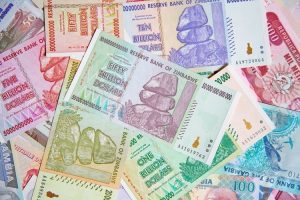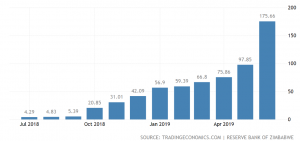TechInAfrica – Zimbabwe has not had its own independent currency since hyperinflation destroyed it ten years ago. Instead, it relied on the US dollar and a local monetary system linked to the dollar. The economy is no longer in its extreme inflationary spiral, but the country continued to suffer from severe shortages of food, medicine and fuel. Last month, the Zimbabwean authorities reintroduced the Zimbabwean dollar as the country’s sole legal currency.

Foreign Minister Sibusiso Moyo says the measure has stabilized the economy. But is he right? Reality Check examines the country’s main economic indicators before and after the reintroduction of the currency. The question of whether the official figure accurately reflects the increase in goods in shops and petrol stations, for example, is also debated. Leading economists argue that the cost of living is likely to be higher than official figures indicate.
Since the introduction of the new currency on 24 June, it has fallen against the US dollar. This benefits Zimbabwe’s agricultural exports, mainly to its tobacco sector. But any positive effects will probably be offset by more expensive imports, which will lead to further inflationary pressures on the economy.
Zimabawe inflation rate:

The weakness of the currency is expected to have an impact on the entire economy, as importers have difficulty accessing foreign currencies such as the US dollar to buy goods abroad.In the longer term, the government has cut spending since last October and is now running a budget surplus, which it believes indicates an improvement in the economy. Independent economists are sceptical about these figures.
Decrease in the value of wages
In Zimbabwe, public sector workers are paid in local currency and there is concern that due to the decline in their wages against the US dollar and inflation, they now earn less.
Zimbabwe’s largest public sector workers’ union, Apex Council, has stated in a petition that the value of earnings has dropped from “at least $475 to only $47 currently for the lowest paid civil servant” since last October.
Last week, Cecilia Alexander, president of the Apex Council, said that the government’s austerity plans had left workers stuck in poverty. However, the unions agreed to a one-time payment of Z$400 ($45) to each worker in July, while wage talks continue.
Source: BBC News



